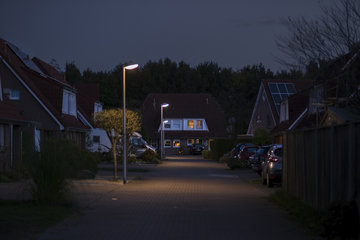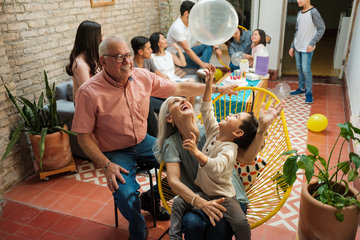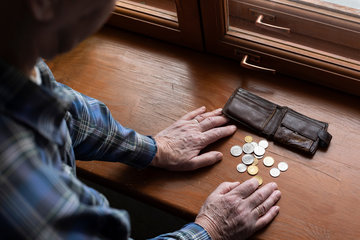More problems, more fear
Where people live influences fear of crime levels in victims of crime
People react differently to becoming a victim of crime when they live in disadvantaged neighborhoods: Their fear of crime increases more strongly compared to victims from privileged neighborhoods. This is the finding of a study involving over 3,000 participants from the German cities of Cologne and Essen, conducted by Florian Kaiser and Dietrich Oberwittler from the Max Planck Institute for the Study of Crime, Security and Law in Freiburg, Germany.

It has long been established in criminological research that a person’s fear of crime rises after a victim experience. But what influence does their living environment have on this effect? This was the question pursued by researchers from the Max Planck Institute for the Study of Crime, Security and Law, when they repeatedly surveyed 3,300 adults in 140 different neighborhoods in the cities of Cologne and Essen: first in the spring of 2014, and then again in the fall of 2015. Such a repeat survey of the same people enables researchers to assess changes in fear of crime levels in relation to violence experienced in a neighborhood. This allows them to accurately analyze cause-effect relationships.
What the researchers found was that, in the aftermath of experiencing an act of violence, the residents of disadvantaged neighborhoods became more afraid of becoming a victim of another crime than people from more privileged neighborhoods. In general, people in such disadvantaged neighborhoods are more likely to receive welfare benefits or come from a family who migrated to Germany from abroad. Neighborhoods in major cities are very much divided (“segregated”) along the lines of income, social status, and ethnic background. The respondents living in neighborhoods with more than 30% of welfare recipients reported a significantly higher rise in fear than any other participants. In contrast, high rates of crime and signs of disorder in public spaces did not lead to higher increases in fear of crime levels.
“What might explain our findings is that people in particularly disadvantaged neighborhoods not only have to deal with their own problems but also with various social issues in their neighborhood. Combined, this might overwhelm them when it comes to processing their victim experience. In addition, people who are less well off lack the financial means and often also the psychological support to master crises and blows of fate. When they have to deal with too many personal problematic experiences and issues in their neighborhood, then their sense of insecurity and their fear of crime increase,” explains Florian Kaiser.
The researchers have no easy solution for this dilemma, especially in light of the fact that social segregation has been rising in major cities in the last few years due to increasing income disparities in Germany. Becoming aware of the negative consequences of social disadvantages concentrating in certain areas is meant to prompt debate about social policies on one hand, and ways of leveling out wealth and income disparities on the other. “For example, investing in childcare and schools in disadvantaged neighborhoods, as the German government has just decided to do, has the long-term potential of supporting people affected by this,” adds Kaiser.
Background Information
The Independent Research Group “Space, Contexts, and Crime”, headed by Dietrich Oberwittler, investigates the connections between social processes and crime in urban spaces. More information on research-groups/space-contexts-and-crime.












